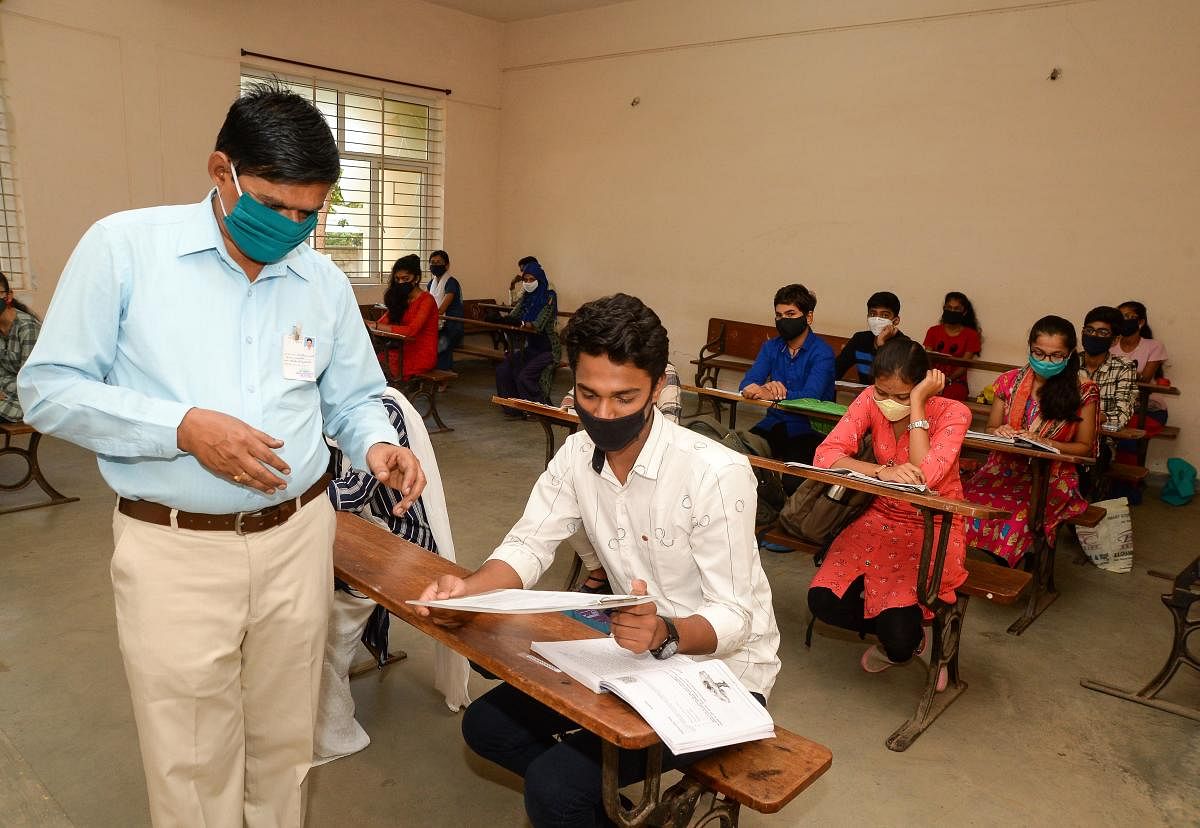The common perception among children and parents alike is that exams are the main reason for going to schools. Somehow, the whole exciting journey of learning new things, finding out interesting facts about the world and finding out ways to solve problems that bother us, get forgotten in the face of looming examination stress.
Schools, instead of focusing on education start focusing on examinations, as if the two were synonymous. Or even worse, people come to believe that education without exams is pointless. These days, people are heard saying, why bother with schools if there are not going to be any examinations. Most teachers would be equally perplexed if told that they should teach, but not in order to help children pass examinations.
What then should schools do by way of education? In order to answer this question, let us briefly examine the purpose of education. I think most people would agree that education should help a person lead a better life. Better, not just in terms of material conditions, but also in terms of health and moral and mental well-being. This would mean that education should help us live decently with each other and actively engage with issues concerning society.
At the most fundamental level, our individual well-being is deeply bound up with the well-being of our fellow beings and with the well-being of planetary ecosystems. Sadly, schooling often promotes the opposite by actively encouraging children to think of themselves as individuals competing with each other. This competitive attitude is further sharpened by the examinations, where individuals are given grades and ranks.
Marks vs knowledge
Students start thinking about themselves in terms of their examination scores! Isn’t this a sad form of reductionism? Each one of us is so much more than our exam scores, even if we assume that the exam scores reasonably reflect our abilities in some limited areas. Truthfully speaking, examinations often do not even accurately reflect our abilities in a given school subject.
I have had so many people tell me that they never really enjoyed or even truly understood their school subjects, but had simply managed to learn the trick of scoring well in tests and exams.
Come to think of it, if school completion examinations did reflect the student’s abilities in various subjects, why would professional programmes insist on another round of entrance examinations in the very same subjects? The fact that even students seeking admission to liberal arts or pure science degrees have to take entrance tests, indicates that the colleges too, do not value the scores of the school leaving examinations.
If higher education needs to be restricted, then it can be done by ranking students on the basis of their school leaving examinations rather than making students face several rounds of entrance tests. It is an open secret that the board examinations conducted in many states is a poor indicator of student ability.
There has been a long-standing demand for examination reforms and the direction for these reforms has been articulated very well in the National Curriculum Framework drawn up by NCERT in 2005.
Commitment
Unfortunately, we seem to lack the political will to bring in much needed reforms in the exam system. The current trend seems to be moving in the direction of having for-profit agencies taking over the whole process of testing and ranking.
This may appeal to the bureaucratic mind-set wherein, standardised testing provides a rational way for employers to decide which employee gets placed where. However, no amount of standardised testing seems to provide us with a foolproof way of judging people’s abilities. If we admit this, we will be able to move towards flexible and adaptive systems of learning and working.
At present it seems that we are in the thrall of numbers and ranking. Even the pandemic has been reduced to scores — of number of infections and fatalities with states and countries being ranked and even graded in terms of alleged success or failure. It almost seems as if we don’t want to work with the incredible complexities of life and want to find a false sense of control by measuring and reducing everything to numbers. It's time to take a fresh look at the aims of education and the very limited role of exams in true education.
(The writer is founder, Poorna Learning Centre, Bengaluru)
